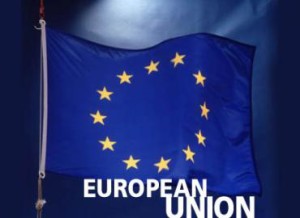Huffington Post
Magnus Norell
The newly presented report from the EU corruption watch-dog — OLAF — about embezzlement of funds from the EU to Polisario, comes as no real surprise for those of us who have followed the confluence between organized crime and terrorism in West Africa. In the investigation OLAF shows how Polisario leadership, in cahoots with Algeria, has inflated the number of refugees in the camps in Tindouf in order to increase aid-money and supplies intended for the refugees. Furthermore, good-quality foodstuff like Canadian wheat for example, intended for the refugees were switched to lower-quality provisions, selling the higher quality goods on the open market.
The report lists organizations and names behind the swindle and accuses the perpetrators to have built up an elaborate scheme that begins already in the port of Oran, to where aid-supplies are shipped before being transported to the camps further south. Also, goods intended for the refugees were sold to them instead of given to them as was the intention by the donors.
To make matters even worse, it turned out that Algeria used prisoners (both civilian and prisoners of war) to physically handle the goods as well as constructing facilities to handle the aid. Algerian authorities has said that 155,000 people are in the camps, but have, supported by Polisario, steadfastly refused an independent count of the actual number of refugees. Despite this, in 2005 OLAF down-sized the number of refugees to 90 000, showing that there already was suspicion from EU about the number of people supposedly being helped by the EU taxpayers. This is important because, as is pointed out in the report, one of the major factors enabling these scams to go on for several years, were the conscious efforts to lie about the number of actual refugees in the Tindouf camps.
The investigation by OLAF itself has an interesting story; It started already in 2003 and in 2007, during a hearing in the European Parliament, the then commissioner for budget — Kristalina Georgieva — was forced to admit that the commission in Brussels had not found it necessary to pull support and instead had kept up aid to the tune of 10 million Euros a year, all administered by Polisario and their Algerian counterparts.
The report was therefore “buried” for 7 years and only in 2014, after the intervention of the European mediator, the report became known and subsequently publicized.
This is embarrassing for the EU of course, but it also points to the sensitivity of the issue of Western Sahara, a long drawn-out conflict that pitches Morocco, who controls most of the area, against Algeria who support and controls Polisario through its security services and who sees an independent Western Sahara as a gateway to the Atlantic. In 1991, a cease-fire agreement was implemented but since then not much has happened to solve the conflict. Morocco has suggested an autonomy-plan with extensive self-rule for the area, but Polisario and Algeria wants a referendum on complete independence. Morocco has not completely ruled out a referendum but there is a conflict about who exactly are supposed to be allowed to participate. A relevant issue since the area has been contested since the Spanish left the territory in 1975.
Adding to the complicated situation is the fact that since militant Islamism started to become an increasing problem for the Sahel countries in particular and North-West Africa in general, Polisario has become even more entangled in various criminal activities, like smuggling and trafficking. Even more worrying is the fact that militant Islamists have aggressively targeted the Tindouf-camps in efforts to recruit militants. Intelligence agencies in the area has for years pointed out that this is an increasing security problem and has accused Algeria (where the camps are located) of negligence in letting Islamists in. This issue goes beyond just being a conflict between Morocco and Algeria and is a regional headache that can only be efficiently tackled by more regional cooperation, something not in the cards right now, despite initiatives from Morocco, Mali and Niger to that effect.
The whole sordid affair investigated and publicized by OLAF is thus just the most recent example of how a complicated conflict has been allowed to fester, leading to more crime and corruption and in the meantime making life even more difficult for the people in the camps.








